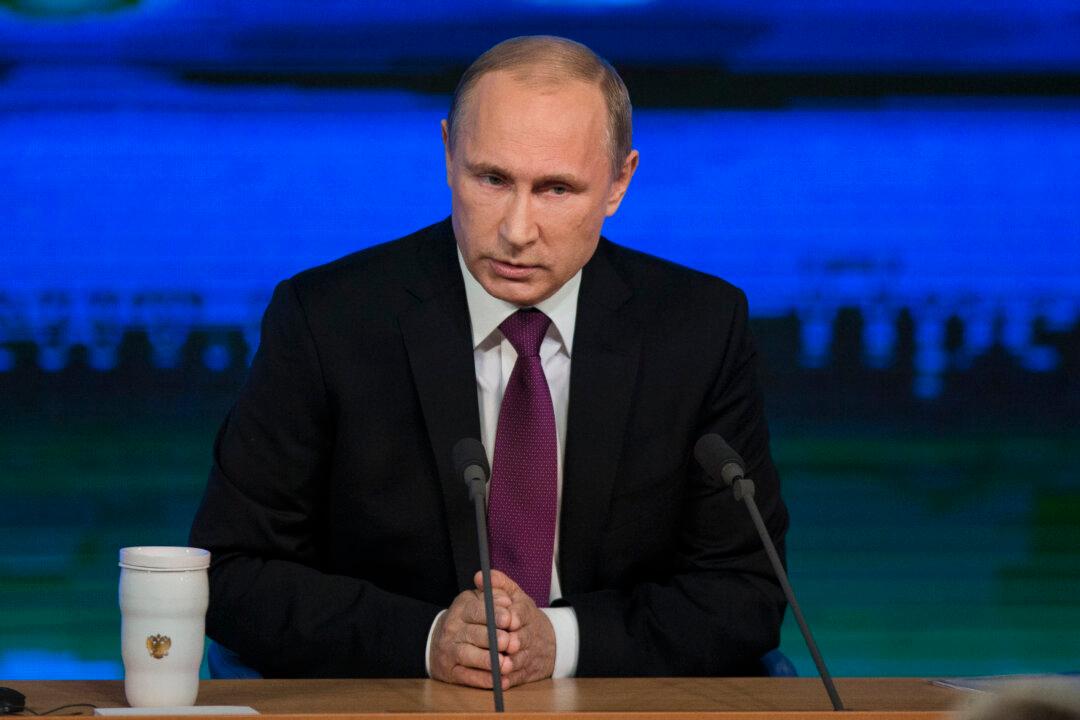MOSCOW—Russia’s parliament gave preliminary approval Wednesday to a bill that would grant compensation to individuals hit by Western sanctions, a move that the usually compliant opposition criticized as a Kremlin attempt to buy the loyalty of the elite.
The bill, which also allows Moscow to seize the assets in Russia of foreign individuals encouraging the sanctions, proved particularly divisive and passed by a small margin of 233 votes to 202.
The law was first proposed in April, but later withdrawn amid a torrent of criticism. The government’s dramatic about-face and the bill’s re-introduction to parliament in September came just one day after Italian authorities seized approximately $40 million-worth of property owned by Russian businessman and longtime Putin ally, Arkady Rotenberg.
As the Ukrainian crisis escalated this year, the Russian elite has rallied around Putin as he annexed the Black Sea region of Crimea and remained defiant in the face of Western criticism and sanctions.
[aolvideo src=“http://pshared.5min.com/Scripts/PlayerSeed.js?sid=1759&width=480&height=300&playList=518453159&responsive=false”]
But as the sanctions start to bite, it has become clear that such loyalty will come at a price. Compensation out of a shrinking state budget for sanction-hit companies — which are now almost completely cut off from Western debt markets — could become a rallying cry for opponents who see it as favoring Putin’s rich friends and have already dubbed Wednesday’s bill the “Rotenberg Law.”
Rotenberg, a childhood friend of Putin’s and judo sparring partner, was placed on a European Union blacklist in July as part of broader sanctions. On Sept. 23, the Italian authorities said they were seizing property controlled by Rotenberg, including a luxury hotel in Rome and two villas in Sardinia.
The bill must be voted on two more times and can be amended before its final approval. Besides the compensation, it would allow Russia to seize property of any foreign citizens who instigate property seizures against Russian individuals abroad. In the absence of such property, Russia may seize state property of that country, even if protected by diplomatic immunity.
The bill attracted an unusual amount of criticism from the opposition.
“It turns out that the property rights of certain individuals, particularly those who are close (to power), are exceptionally more important than the property rights of millions,” communist legislator Nikolai Kolomeitsev said during a speech.
Earlier, Economic Development Minister Alexei Ulyukayev said the law was counterproductive because it would help encourage Russians to pull their money out of the country by insuring their property abroad.
If passed, the law could expose the Russian government to a flood of requests at a time when several companies hit by sanctions are already asking the government for financial support.
Last month, Finance Minister Anton Siluanov told Russian news outlets that the government was prepared to spend up to 60 percent of the country’s $85 billion national wealth fund this year to help the economy amid the sanctions. While much of the money was already earmarked for infrastructure projects, Siluanov said some of it would be used to help buoy sanctions-hit state companies, in particular the energy giants Rosneft and Novatek. The government has also said some companies might get a cut of the 309 billion rubles ($7.8 billion) accrued from redirecting public pension savings.
While experts agree that many of the Russian companies hit by sanctions have enough liquidity to pay off short-term debts, most say that if the sanctions remain in place for months they will inflict longer-term pain on the Russian economy, where growth predictions have shrunk dramatically and budget spending is already being trimmed back.
For Putin, juggling the loyalty of his inner circle with promises for economic growth could prove a major challenge in the coming months.
“The loyalty of the elite is extremely important for the leader of a fortress under siege,” read a recent editorial in the respected Russian business daily Vedomosti. “With this law the problem is solved: the national leader will buy the elite with the help of the budget.”
From The Associated Press




